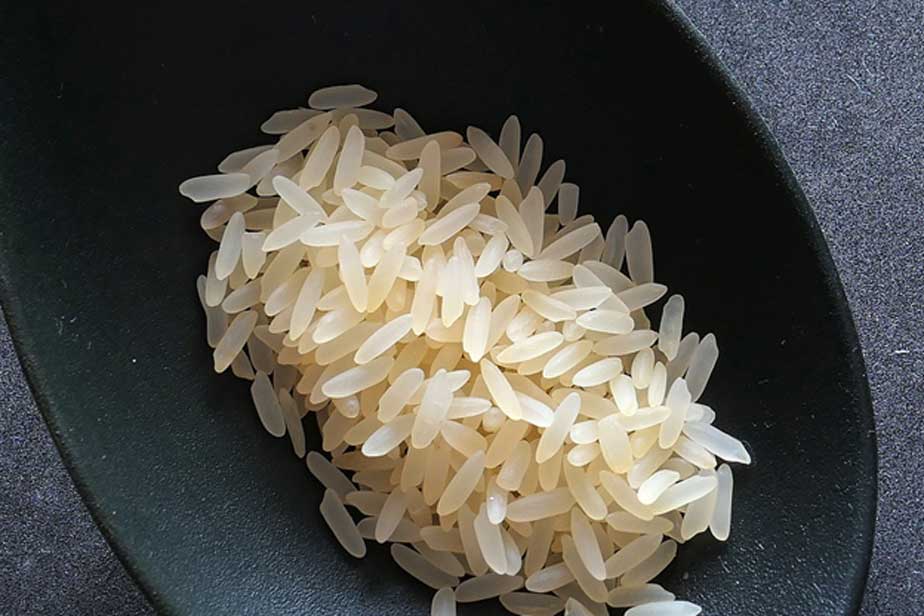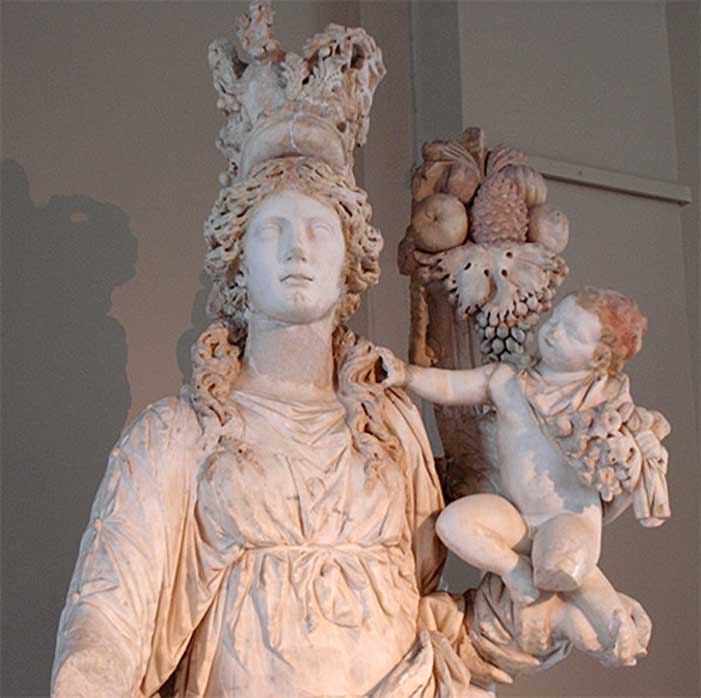
Rice Goddesses - Earth Mothers who Influenced Heaven, Earth, and the Underworld
For centuries, rice has been a staple diet and plays an important role in Asian culture. Although rice farmers have found their lives becoming more difficult due to climate change, Bloomberg states in 2016 that 16 million people still farm rice in Thailand alone. Commemorating the beginning of the rice growing season with an annual Royal Plowing Ceremony in the month of May is an ancient tradition for countries such as Thailand, Cambodia, and Sri Lanka, among others. Some of the duties of the Emperor of Japan as chief Shinto priest is the ritual planting of the first rice seeds on the grounds of the Tokyo Imperial Palace, as well as performing the first harvest ritual.

Rice is a very important food for much of the world (Public Domain)
Of course, rice would have powerful deities to guard it! Among them are Cambodia’s Po Ino Nogar, the polyandrous goddess who is also associated with the sky, clouds and water. Indonesia’s goddess Dewi Sri is associated with rice and the moon, also believed to have dominion over the underworld, domain of the serpent or naga (dragon) race - the very same race that is, according to legends, the progenitors of the Khmers (an ethnic group native to Cambodia).
Although these goddesses, as well as their many variations of legends, may be overshadowed by the famous Demeter, the Greek goddess of the harvest, they exhibit many of the elements of Demeter’s characteristics. They all journeyed to the underworld in one way or another. They also resemble Demeter in their association with snakes, fertility, and motherhood.

Demeter and Pluto (Auturbin /CC BY-SA 4.0)
In 1849, German Classicist Eduard Gerhard speculated that the various goddesses found in ancient Greek paganism (including Demeter herself) had been representations of a singular goddess who had been worshipped much farther back into prehistory - associating this deity particularly with the concept of Mother Earth. Evidently, the influence of the Mother Goddess reached further than ancient Greece.
The Great Mother Goddess Demeter? Harvest, Law Bringer, and the Mother whose Power Brings Death and Renewal
Before we discuss these goddesses, it is useful to remember the Greek Goddess Demeter and her characteristics. She presided over grains and harvest. Her cult titles include Sito ("She of the Grain") and Thesmophoros ("Law-Bringer"). Demeter bestowed wheat seeds on a trusted priest, who then crisscrossed Earth on a dragon-drawn chariot, sowing the blessings of agriculture and civilization—thus marking the civilized existence of an agricultural society.
- The Egyptian Goddess Isis, Found in India
- The Eleusinian Mysteries: An Unresolved Ancient Greek Puzzle
- A marble slab inscription invoking a goddess sheds light on Thracian history
- Descent to the Underworld: The Little-Known Practices and Symbols in Ancient Mythology of the Great Below
Though Demeter is often described simply as the goddess of the harvest, she also presided over the cycle of life and death. The story of Demeter and her daughter Persephone was in fact the oldest story in Greek mythology which was derived from the stories of Isis of Egyptian mythology, and Inanna of Sumerian mythology. Isis and Inanna preserved many features of the Neolithic and Paleolithic Great Goddess; the fertility Goddess who was the primary deity of the agricultural peoples of prehistoric Europe and the Middle and Near East for thousands of years. The myth of the Great Goddess revolved around the annual sacrifice of the young Horned God, a grain god who was both her son and consort.





